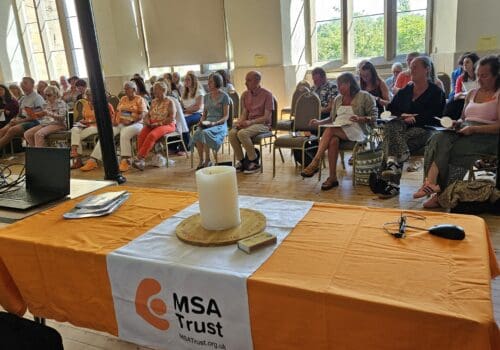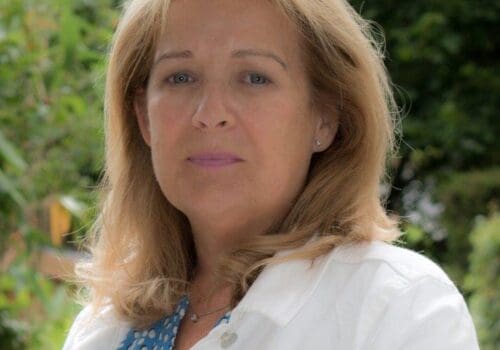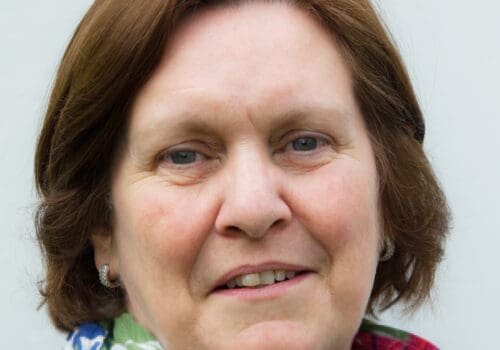The Wrong Number
This year’s research grant awards
In an inherited form of Parkinson’s disease there is a genetic mutation in which there are more copies than usual of the gene that produces the protein alpha-synuclein. The result is that more of this protein is produced in brain cells and gets laid down as damaging inclusions in the cells.
MSA, on the other hand, is largely not inherited. So why am I even mentioning this? Well, a comparatively recent discovery by Prof Chris Proukakis is that such mutations can arise not from inheritance from one’s parents but later on during the body’s development or through ageing. He and his team have discovered that sets of mutated cells with duplications of the alpha-synuclein gene (known as SNCA) are often found in those areas of the brain which atrophy in MSA. How and why these so-called ‘somatic’ mutations are caused are mysteries that remain to be revealed further down the line. MSA is not the only neurological disease where this phenomenon appears to exist.
Right now there is a need to confirm the close association of Copy Number Variations (CNVs) – as these mutations involving extra copies of the genes are called – with the presence of inclusions in the same cells. They also need to prove that the CNVs actually cause the excess alpha-synuclein through the normal transcription processes in the cell and therefore are drivers of the disease.
Along the way some important anomalies need to be cleared up such as why sometimes inclusions occur without CNVs and why sometimes CNVs don’t give rise to inclusions. There could be other MSA-promoting conditions and other somatic mutations that cause the same thing. And it could also be that an element of the experimental technique used to reveal protein inclusions could be partly failing and need changing. Such factors need to be explored to get the accurate picture.
All this is an illustration of how complex biology is, particularly at the cellular level. At the risk of delving into philosophy, this is an example of why researchers must be painstaking and take care not to jump to quick conclusions following what appears to be a significant insight. Without thoroughly investigating and understanding what and how something is going wrong, it is not possible to come up with a tailored remedy that stands a chance of working. Good research is not cheap, but we are fortunate in the field of neurology to have an abundance of excellent and dedicated researchers.
The Project:
Detailed assessment of the role of somatic genomic copy number variants (CNVs) in multiple system atrophy
Lead Applicant: Prof Christos Proukakis, UCL Queen Square Institute of Neurology
Disclaimer: The views and opinions expressed in the blogs published on these pages are those of the authors and do not necessarily reflect the official policy or position of the MSA Trust.
Recent Posts

MSA Candlelight 2025
19 Jun 2025 | 2 comments

International Nurses Day 2025
12 May 2025 | 1 comment


Well done to all of you who a trying to find a cure for MSA. I hope one day that you succeed.